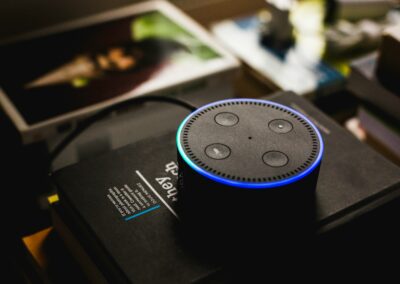Implementing Consent Management Systems to Safeguard Data Privacy
Introduction to Consent Management Systems in IoT Applications
Consent Management Systems in IoT Applications play a critical role in ensuring that organizations comply with data privacy regulations while effectively managing user consent. As the adoption of IoT technologies accelerates in regions like Saudi Arabia and the UAE, cities such as Riyadh and Dubai are leveraging IoT applications to improve urban infrastructure, healthcare, and business operations. However, with the increased data collection capabilities of IoT devices comes the responsibility to manage this data ethically and legally. Consent management systems provide the framework necessary to obtain, store, and manage user consent, ensuring that personal data is processed in accordance with regulatory requirements.
For business executives, mid-level managers, and entrepreneurs, understanding the importance of consent management in IoT applications is essential for maintaining compliance with data privacy laws such as the GDPR and local regulations in Saudi Arabia and the UAE. IoT devices, by their nature, continuously collect and transmit data, often in real-time, making it imperative to have robust systems in place that respect user preferences regarding their personal information. These systems not only help in complying with legal obligations but also enhance user trust by giving them control over their data.
In smart cities like Riyadh and Dubai, where IoT applications are integrated into everyday life—from traffic management systems to smart healthcare solutions—the implementation of consent management systems is crucial. This article explores how these systems ensure compliance with data privacy regulations and outlines the best practices for managing user consent in IoT applications.
Why Consent Management Systems Are Essential in IoT Applications
The implementation of consent management systems in IoT applications is not just a legal requirement but a fundamental aspect of ethical data management. IoT devices often collect sensitive information, such as location data, health metrics, and personal identifiers, which can be used to improve services but also pose significant privacy risks if not handled properly. Consent management systems provide a structured way to obtain and document user consent, ensuring that individuals are fully informed about how their data will be used and that they have the option to withdraw consent at any time.
In Saudi Arabia’s healthcare sector, for example, IoT devices are increasingly used to monitor patient health and manage medical records. Implementing a consent management system in such applications ensures that patient data is collected and used in compliance with both local and international privacy laws. It also provides patients with the assurance that their personal health information is protected and that they have control over who can access it. This not only helps in meeting legal requirements but also builds trust between healthcare providers and patients.
Similarly, in Dubai’s smart city initiatives, where IoT devices are deployed across various public services, consent management systems help ensure that the data collected from citizens is used transparently and with their explicit consent. For instance, smart traffic systems that monitor vehicle movements and congestion must obtain and manage consent from users to comply with privacy regulations. By integrating consent management into these IoT systems, authorities can ensure that data is handled responsibly, fostering public trust in smart city technologies.
Best Practices for Implementing Consent Management in IoT Applications
To effectively implement consent management systems in IoT applications, organizations should follow several best practices that prioritize transparency, user control, and regulatory compliance. First, it is essential to provide clear and accessible information about data collection practices. Users should be informed about what data is being collected, how it will be used, and who will have access to it. This transparency is critical for obtaining informed consent and maintaining user trust.
Another best practice is to ensure that consent is granular, allowing users to provide or withdraw consent for specific types of data processing activities. In Riyadh’s financial services sector, for example, IoT applications used for transaction monitoring should allow users to consent separately to the collection of location data, purchase history, and biometric data. By offering granular consent options, organizations can respect user preferences and comply with legal requirements more effectively.
Additionally, organizations should implement mechanisms for users to easily manage their consent preferences. This includes providing options for users to update their consent, withdraw it entirely, or request the deletion of their data. In Dubai’s retail sector, where IoT applications are used for personalized marketing and customer tracking, giving users control over their data helps build trust and ensures that the organization complies with data privacy laws. Providing user-friendly interfaces for consent management, such as dashboards or mobile apps, can make it easier for users to manage their consent preferences and enhance their overall experience.
Conclusion: The Future of Consent Management in IoT Applications
The adoption of Consent Management Systems in IoT Applications is crucial for ensuring that data privacy regulations are met and that user trust is maintained. As IoT networks continue to expand in regions like Saudi Arabia and the UAE, integrating consent management into these systems will become increasingly important. By following best practices such as providing transparent information, offering granular consent options, and enabling easy consent management, organizations can navigate the complex landscape of data privacy with confidence.
In smart cities like Riyadh and Dubai, where the potential of IoT technologies is being fully realized, the effective management of user consent will play a pivotal role in the success of these initiatives. As regulations continue to evolve and users become more aware of their privacy rights, the ability to manage consent in a clear, transparent, and user-friendly manner will be essential for any organization looking to leverage IoT technologies responsibly. By adopting robust consent management systems, businesses and governments can ensure that their IoT applications are both innovative and compliant, paving the way for sustainable growth in the digital age.
—
#IoTApplications #ConsentManagementSystems #DataPrivacy #Compliance #UserConsent #IoTSecurity #DataRegulations #ModernTechnology #SaudiArabia #UAE #Riyadh #Dubai































